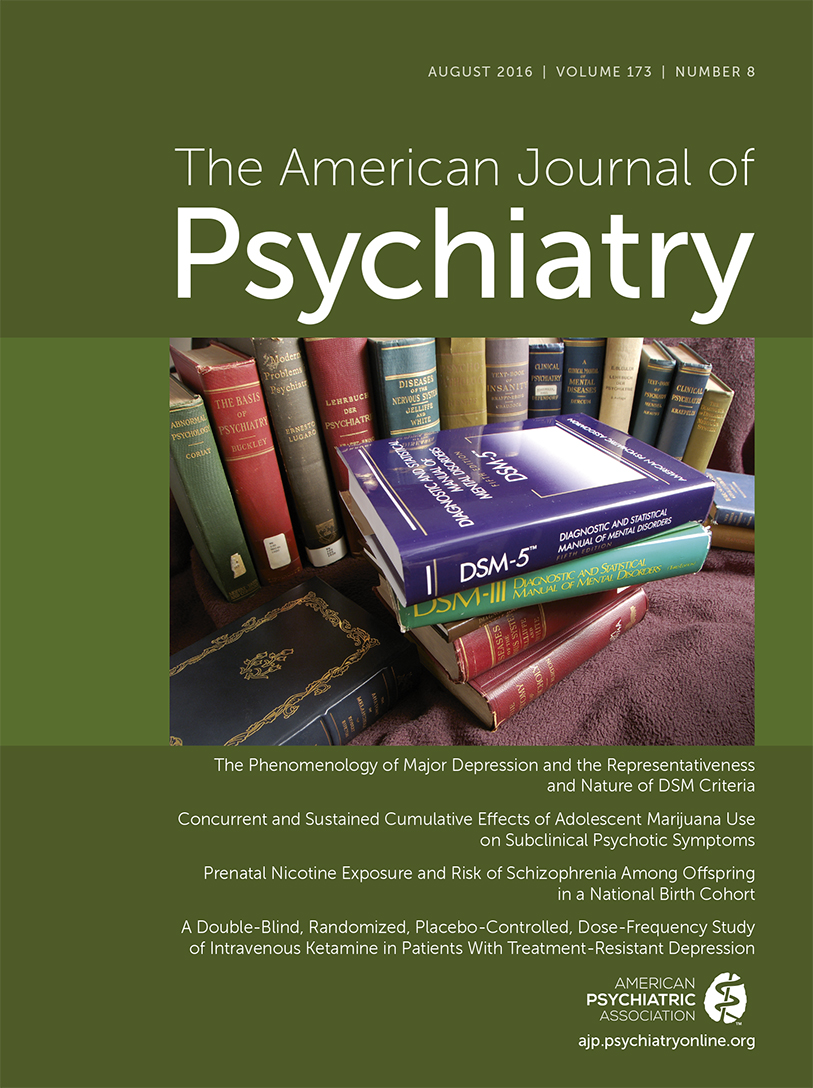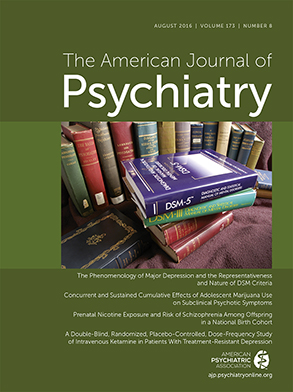Persistent Depersonalization/Derealization Disorder Induced by Synthetic Cannabinoids
In November 2014, following a single dose of the synthetic cannabinoid K2, without any other associated drug, Mr. A immediately presented with symptoms reflective of depersonalization/derealization disorder. He described a detachment from his own thoughts, body, and feelings and his impression “of not being there.” He also reported the feeling of being disconnected from his own body, “as if his mind were outside his body,” without reaching out-of-body experience. The emotional numbing was paradoxically associated with very painful feelings. Derealization was also reported as he had the impression “of being in a dream.” The patient was aware of a disturbing change in his experience of himself and his surroundings. His sense of reality was intact.The patient asked for help nearly 6 months later, noting continuing unrest even though he immediately stopped using K2 and cannabis. He fulfilled the DSM-5 criteria for depersonalization/derealization disorder.The patient’s results on the Cambridge depersonalization scale (1) were scored as 220/290. His symptoms caused significant distress and impairment in social and occupational functioning and were not better categorized under another mental disorder. There were no symptoms of a psychotic disorder, anxiety, or depressive mood disorder, as classified by DSM-5. Results of an electroencephalogram and brain imaging were normal, and results of a subsequent urine analysis were negative. He received fluoxetine treatment for 6 months without any improvement. The symptoms remained persistent for more than 17 months.
Discussion
References
Information & Authors
Information
Published In
History
Keywords
Authors
Funding Information
Metrics & Citations
Metrics
Citations
Export Citations
If you have the appropriate software installed, you can download article citation data to the citation manager of your choice. Simply select your manager software from the list below and click Download.
For more information or tips please see 'Downloading to a citation manager' in the Help menu.
View Options
View options
PDF/EPUB
View PDF/EPUBLogin options
Already a subscriber? Access your subscription through your login credentials or your institution for full access to this article.
Personal login Institutional Login Open Athens loginNot a subscriber?
PsychiatryOnline subscription options offer access to the DSM-5-TR® library, books, journals, CME, and patient resources. This all-in-one virtual library provides psychiatrists and mental health professionals with key resources for diagnosis, treatment, research, and professional development.
Need more help? PsychiatryOnline Customer Service may be reached by emailing [email protected] or by calling 800-368-5777 (in the U.S.) or 703-907-7322 (outside the U.S.).

